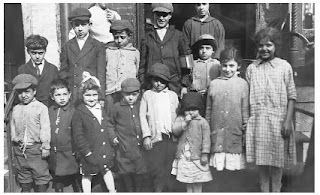Why Understanding the 'Other' is Essential to Understanding Ourselves

As a Christian American with Arab roots, I was raised with the essential understanding that the more we know about others, the more we learn about ourselves. Americans and many Westerners have the impression that Arabs and other cultures have a very narrow view of the world, since they come from a homogeneous and paternalistic society rooted in their own philosophies seperate from 'the West'.
However, I must contend with this viewpoint. Arab culture as well as all cultures of the world are far from homogeneous. Islam, Zoroastrianism, Christianity, Sufism, Judaism, along with different cultural practices pervade the Middle East, creating a cohesive religious diversity that most societies envy. Although politics is really the point of all contention in all societies, religion has always been a significant cause for Arab identity--causing many to live their lives by their faith and practice. Even moreso, because Arabs in the Middle East come across Christians, Muslims, and Jews on a daily basis, they often times look to the other for understanding and common ground, perhaps as a necessity to better understanding themselves.
I cannot say the same for American culture. How often does the ordinary American come into conversation with someone from another faith? If so, what is that conversation like? All too often Americans prefer to stay away from the subjects of religion and politics, so when, in reality, will they ever get the chance to learn about someone else's viewpoints or religious beliefs?
As a history professor, I often times lecture on other religions different from my own. But what I come across when discussing these religions is that all Western thought seems to have assembled with Eastern philosophy at some point in time. The concepts of enlightenment, virtue, transcendence of the soul, loving the poor and your neighbor, all have Eastern roots. How else did the ancient Athenians come from a brutal helot society to that of a stable polity if not for the hellenist movement under Alexander? Was it not Alexander who adopted the ways of the Persians and Indians throughout his travels and conquests? By incorporating 'different' customs and simultaneously spreading the 'All Greek' identity, his empire flourished.
Judeo-Christian beliefs mirror these concepts. Is not the art of meditation and devotion rooted in all ancient religions? Does the Hindu who practices puja relate to a Christian who is baptized at birth? Absolutely. The symbols of purification are ingrained in all ancient religious practice--making this but one example to illustrate the interrelation of religious devotion across the east/west sprectrum.

Another point. Can Christians and other religions practice their faith and include the elements of other faiths to promote the concepts of enlightenment, devotion to God, praise to their Creator, without being labeled a heathen? Well, my answer is yes. Catholics and other Christians incorporate Judaic beliefs into their doctrines, just as Muslims incorporate Hindu or Judaic customs to strengthen their faith. The Arabic word "Bismillah" or 'In the name of God' is repeated among Muslims, Christians, and Jews alike.
I must say, if it were not for my understanding of other faiths, I would not feel so strong in my own. Although religion is a strong part of my identity, I understand its relativeness to that of the world and history. More importantly, my ancestors and family come from a part of the world where all religion must be respected in order to live harmoniously. I lose nothing by understanding and respecting other cultures and faiths, instead I gain everything.



Comments